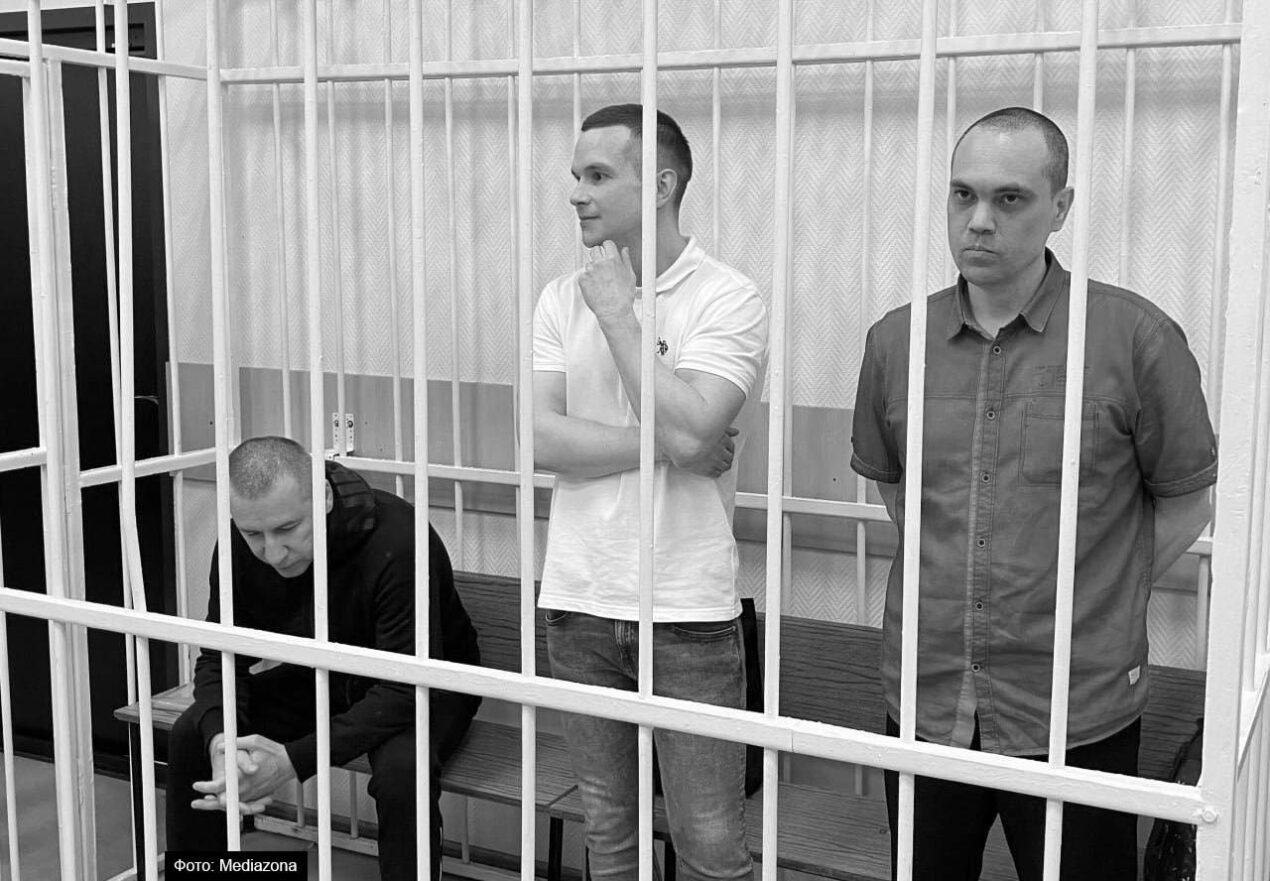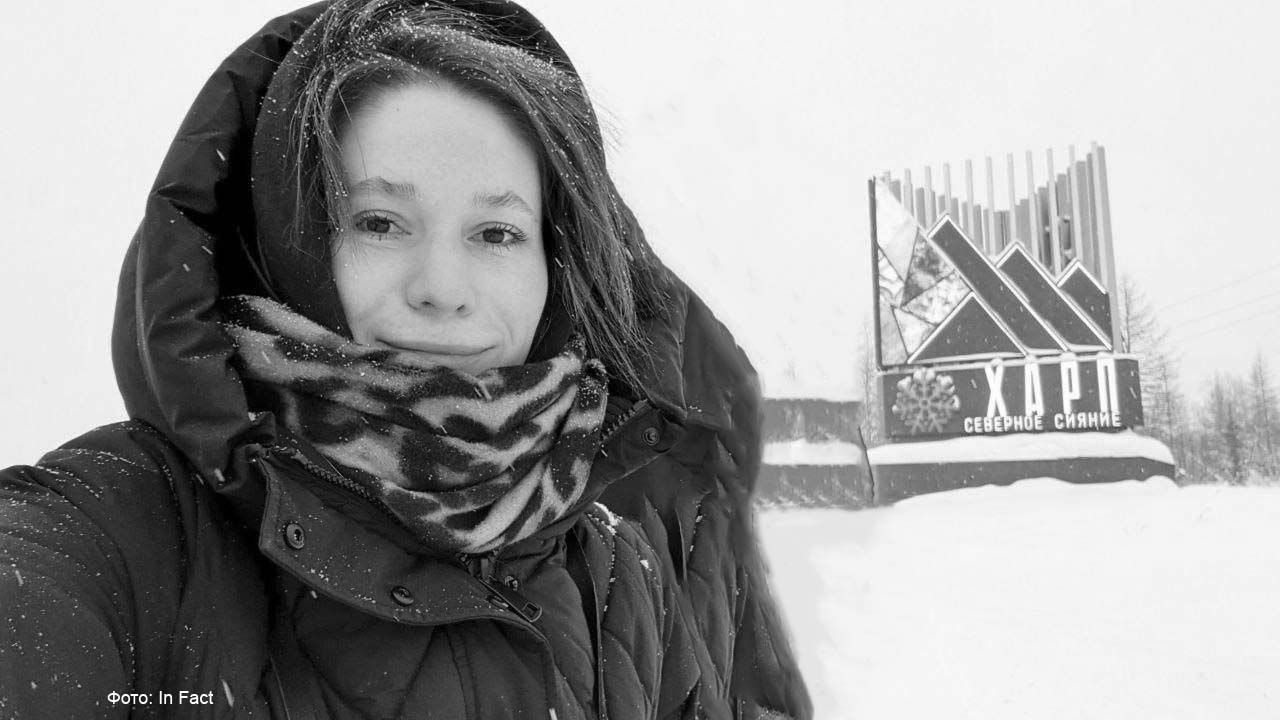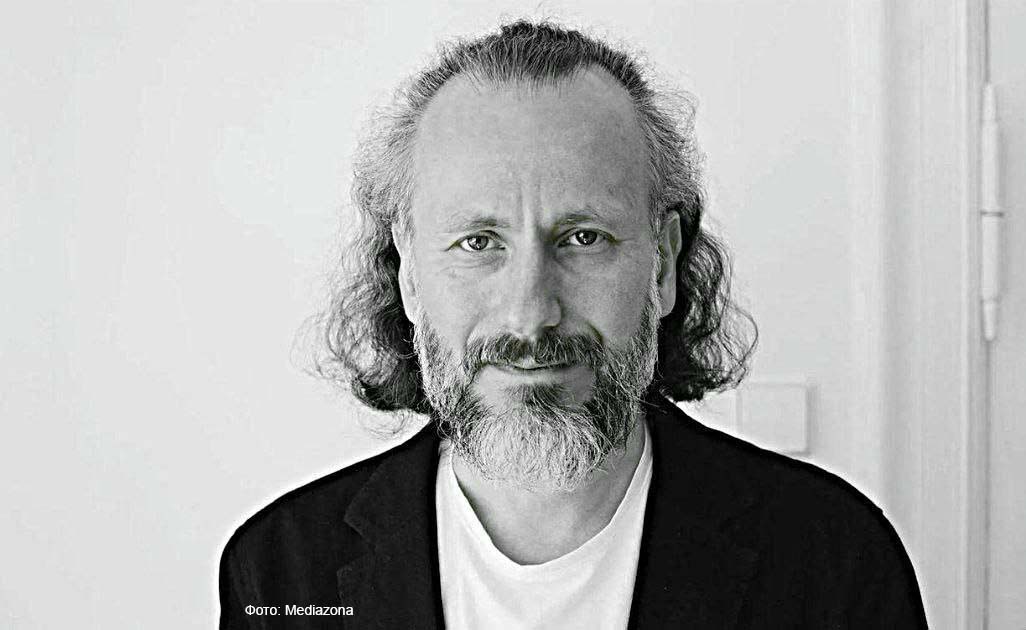
The trial of personal opinion. The story of Oleg Orlov, co-chairman of Memorial
The trial of personal opinion. The story of Oleg Orlov, co-chairman of Memorial
On 21 March 2023, law enforcers searched nine members of the human rights organization Memorial*. Oleg Orlov*, co-chairman of Memorial, was among those searched. On the same day, he became the subject of a criminal case for “discrediting the army” because of a Facebook** post, an article also published by the French publication Mediapart in November 2022.
Orlov did not admit his guilt, but confirmed the authorship of these publications and said that the article “They wanted fascism. They got it” is an expression of his personal opinion about the events taking place in the Russian Federation and in the world.
A biologist by training, Oleg Orlov is one of the founders of the Memorial Society*, was a member of the leadership of the Memorial Human Rights Center* and International Memorial*, and later became co-chairman of the Memorial Center for the Protection of Human Rights*. In 2004-2006, he was a member of the Presidential Council for the Promotion of Civil Society Institutions and Human Rights. Winner of the 2009 Andrei Sakharov Prize for Freedom of Thought, winner of the 2012 Moscow Helsinki Group Prize.
During a court session on February 11, 2023, Orlov was awarded a fine of 150 thousand rubles under the article on “discrediting the army.” However, the prosecutor was not satisfied with the fine and appealed the sentence for the human rights activist. On February 27, 2024, at the next hearing in the case, Oleg Orlov’s fine was replaced* with a term of 2.5 years in a general regime colony and was taken into custody in the courtroom.
We’ll look at this story from three angles: Pro, Contra, In fact
CONTRA
Oleg Orlov was searched on March 21, 2023, at which time law enforcement officers seized a laptop, three hard drives, several flash drives, Memorial stickers, a “No to War” badge, and the book Russia-Chechnya: A Chain of Mistakes and Crimes. The criminal case was opened a few hours later by Lieutenant I. Savchenko, a senior investigator* of the IC department for the Tverskoy district of Moscow.
According to the human rights defender*, the criminal case against him was opened on the denunciation of “certain Mr. Mironenko V.V. and Mr. Bokhonko S.A.”. Orlov claims that both Mironenko and Bokhonko are related to the leadership of the Veterans of Russia public movement and stated in their denunciation that Memorial is “a negative organization hostile to Russia.” The accusation was based on a linguistic examination of Orlov’s article conducted by the Center for Sociocultural Expertise’s staff, mathematician Natalia Kryukova and political scientist-translator Alexander Tarasov, as early as December 9, 2022.
It is worth stopping here and noting that this tandem of “experts” has already appeared in the case of the liquidation of the Memorial Human Rights Center. Also, in several other famous cases, the Kryukova-Tarasov pair acted as religious scholars, sexologists, culturologists, social anthropologists, linguists, and legal scholars. Recall that Kryukova is a mathematician and Tarasov is a political scientist-translator. Moreover, Kryukova’s incompetence was previously established by the judicial board of the Mosoblesud, ruling that: “N.N. Kryukova does not possess special knowledge in the field of philology and linguistics”. But let’s return to the examination of Oleg Orlov’s article. According to the conclusion, in the text of the human rights defender, the armed forces of the Russian Federation are “associated with genocide, murder, killing of people, destruction of infrastructure, economy”, also the “expertise” says that the publication contains
“justification of the negative assessment of the actions of the RF Armed Forces, expressed by the presence of a justified negative assessment of the actions of the RF Armed Forces and a positive assessment of the state of Ukraine”.
At the subsequent court hearing*, the witnesses from the prosecution side who wrote the denunciation “Veterans of Russia” Vadim Mironenko and Sergei Bokhonko spoke. Mironenko noted that he had “followed Orlov and his associates and liberals since the 1980s,” and that the activity of Memorial itself was criminal and destructive:
“In my mind, he always carried a destructive function aimed at destroying the existing state system in our country: both in the USSR and in the Russian Federation,” Meduza** quotes the witness as saying. It is noteworthy that Mironenko said almost nothing about Orlov’s article, which gave rise to the criminal case. The human rights activist refused to ask questions to the witness.
Considered a new linguistic expertise, from police lieutenant colonel Maria Zueva. According to Zueva, during the evaluation of Orlov’s article, she was in the role of a trainee under the head of the department Marina Kozlova, who was not summoned to the meeting. The lawyer questioned Zueva in detail about each fragment of the examination, but the judge stopped the defense counsel: “You are suggesting that the expert give a lecture to the participants of the process in the field of philology, which is not the subject of this proceeding,” the court said. Orlov again had no questions for Maria Zueva.
At the debate*, which took place on February 26, prosecutor Vorobyova asked to sentence Orlov to two years and 11 months in prison. The prosecutor said that the position of the human rights defender should be taken critically.
“To the version of the defendant and the defense that he published only his personal opinion, to which he has the right, I suggest to take a critical view. Orlov certainly understood and realized the meaning of the phrases published and the consequences of his actions,” Vorobyeva said.
At a court hearing on February 27, 2024, Oleg Orlov was sentenced to two years and six months in a general regime colony. The human rights activist did not admit his guilt.
PRO
Even before the criminal case was initiated, when Orlov was questioned as a suspect, he noted that he “published his personal opinion about the events happening in the Russian Federation and the rest of the world. Orlov was represented in court by lawyer Katerina Tertukhina, who at the first court session demanded that the case be returned to the prosecutor’s office. According to her, the investigator, who conducted a re-investigation to eliminate violations, had no right to collect additional evidence, interview new witnesses and conduct expert examinations. Also, the prosecution’s report did not specify what words the co-chairman of Memorial had used to “discredit” the Russian Army. At the same time, Orlov himself said at the trial that he did not understand the essence of the charges: “It is absolutely incomprehensible to me how it is possible to persecute me or any other person for expressing an opinion. Judge Elena Astakhova denied the lawyer’s petition.
According to the content of Article 280.3 of the Criminal Code of the Russian Federation, it is possible to discredit the army only when they support the interests of Russia, international peace and security, however, according to Oleg Orlov, the war with Ukraine is not in the interests of the Russian Federation or its citizens, as he wrote in his article. In addition, the human rights defender stated that he refuses to testify and will not subpoena witnesses in his defense*, because he not only does not want to expose them to potential danger (here it is worth remembering that on February 2, 2024 Orlov was recognized as a “foreign agent*”), but also because he considers the trial to be unlawful:
“In making this decision, I rely on the experience of the behavior of some human rights defenders of the Soviet era: Tatiana Velikanova, Sergei Kovalev, Alexander Podrabinek, Vyacheslav Bakhmin and others. They refused to participate in knowingly unjust trials,” Orlov said.
Katerina Tertukhina petitioned to exclude both expert examinations from the case, but the court refused the lawyer.
Tertukhina, in response to the prosecutor’s words that the position of the human rights defender should be treated critically, reminded that the Constitution of the Russian Federation guarantees every citizen the right to have and disseminate their opinions and beliefs. According to the lawyer, the very essence of the charge is untenable, since the co-chairman of Memorial is being tried for “threatening to form a false opinion”:
“The real danger of forming a false opinion? How can an opinion be false? It just is – or it is not,” Tertukhina said.
The lawyer insisted that during the trial the prosecution failed to explain what words from Orlov’s article were the reason for criminal prosecution and that in the current situation it remains only to “reread Kafka”, the book Oleg Orlov calmly read during the court hearings. On the same day, February 26, Oleg Orlov made his last word**:
“On the day when this trial began, Russia and the world was shaken by the terrible news about the death of Alexei Navalny. It shook me too. I even thought about giving up the last word altogether: how can I say anything today, when we are still reeling from the shock of the news? But then I thought: all these are links in the same chain – the death, or rather the murder of Alexei, the judicial reprisals against other critics of the regime, including me, the strangulation of freedom in the country, and the invasion of Ukraine by Russian troops. So I decided to speak out.
I have not committed a crime. I am being tried for a newspaper article in which I called the political regime established in Russia totalitarian and fascist. The article was written over a year ago. And at the time, some of my acquaintances thought that I was over-exaggerating. But now it is quite obvious that I was not exaggerating at all”.
IN FACT
Initially, the case in which Orlov was tried was not the first. After the publication of the human rights activist’s article in the French press and on his Facebook*** page, he was sentenced to a fine of 150,000 rubles, but in the fall of 2023, the prosecutor’s office appealed the verdict, finding “a motive of ideological hatred and enmity” in the case, and demanded that 70-year-old Oleg Orlov be sentenced to three years in prison. Orlov did not repent for having written and posted the article. As before, he stated in court that everything written was his personal opinion.
The sentence was handed down on February 27, 2024. The co-chairman of Memorial was sentenced to two years and six months in prison under the article on “discrediting the army”. Orlov was taken into custody* in the courtroom, and those who came to support the human rights defender shouted the phrase “We love you” as the convict was led away from the courtroom.
In March 2024, when Orlov was in pre-trial detention, representatives of the penal system offered the 71-year-old human rights defender to go to war with Ukraine*. Those who suggested it were not confused by the fact that Orlov was in pre-trial detention precisely because of his opposition to the war in Ukraine. When asked about Orlov’s age, the law enforcers replied that it did not embarrass them.
In the pre-trial detention center Orlov soon began to have health problems, the human rights defender began to hear worse and, despite the fact that he wrote an application for medical care, he was never taken to a doctor.
Yuri Orlov did not conduct his own investigation, he expressed his personal opinion about the war with Ukraine. But this opinion and the human rights defender’s value judgments are based on numerous evidences presented to the world community in the 72-page Amnesty International report and, in particular, in the detailed Associated Press investigation, which are in the public domain.
On appeal, which took place on July 11*, the Moscow City Court upheld the verdict.
*- recognized as “foreign agents” on the territory of the Russian Federation.
**- recognized as a “foreign agent” and “undesirable organization” on the territory of the Russian Federation.
***- Meta is recognized as an “extremist organization” on the territory of the Russian Federation.


